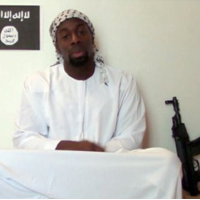
Terrorism
The Paris and Copenhagen Mass Shooting: Where Do We Go From Here?
by Marc-André Cotton*—Int. Psychohistorical Association
This article was published in Psychohistory News,Volume 34, No 2, Spring 2015.
Abstract: The Charlie Hebdo and other mass killings by jihadists are fueling a “Clash of Civilizations” discourse in the West. Psychohistorians can refocus the discussion onto underlying causes of public violence and work towards prevention by promoting reform of child rearing throughout the world.

In September 2005, the Danish daily Jyllands Posten published twelve controversial cartoons of Muhammad, ushering in a period of heightened tension between Europeans and devout Muslims. The debate among the Europeans was initially between uncompromising partisans of press freedom and those who, while acknowledging freedom of expression as a fundamental right, also called for greater sensitivity to the religious sensibilities of cultural minorities.
After the killings in Paris and Copenhagen, the threat posed by Islamic fundamentalism to our democracies is regretfully well established—to the point that some have warned against a “Clash of Civilizations.” Without a better awareness of the real causes of mass violence, such a response raises the specter of escalating intercultural and political conflict.
Transmission of Violence
A society shaken like this to its foundations often reacts by scapegoating one or more subgroups. This common coping mechanism manages mass outrage but does not mitigate the real external threats nor does it acknowledge large group dynamics. An alternative is to examine acts of public violence in the context of the intergenerational transmission of violence that gives rise to them. This includes the complex interrelations between abusive family dynamics, the neurophysiological imprinting of trauma, and the ideological trappings of religious fundamentalism.
Can the root causes of these recent attacks be addressed from this perspective? According to available information, the profiles of the Paris and Copenhagen murderers share at least two things in common: a history of childhood violence and emotional neglect, and patterns of risky behaviors that lured them into social exclusion, crime and ultimately violent jihad. Personal tragedies impacted their early formative years and left in their psyches what is known as “traumatic memory,” the neurophysiology of which is increasingly well understood.
Coming back from school one day, the ten and twelve year old Kouachi brothers, the Charlie Hebdo shooters, found their mother dead in their apartment from a suicide. Amedy Coulibaly, who killed a French police officer and four customers of a kosher market two days after the Charlie Hebdo massacre, had a similarly traumatic past. At the age of 18 he saw his best friend killed in front of his eyes after being chased by police officers.
While we don’t have detailed psychobiographies of these young men, we do know that many immigrants like them experience violence frequently from an early age in ghettos and foster care institutions. A community activist told the Internet daily Reporterre that children in immigrant neighborhoods are routinely submitted to beatings, electric iron contact burns and sexual assault committed by pedophiles. Close to them at the time, she confided: “I remember those kids whose father was always drunk and fell asleep before they came back from school. He locked the door and the children slept in the stairwells[1].”
A Religious Framework
As adults, people with such traumatic family histories are at greater risk than the general population for induction into religious fundamentalist “families,” where their abusive parental introjects can be projected onto authoritarian leaders. One such leader was Djamel Beghal, a former member of an Islamic fundamentalist group in Algeria, who played a key role in the radicalization of the Paris murderers. “For me, religion comes first, I don’t give a damn about family” said Coulibaly to Beghal, unaware that the police were monitoring them[2].
The Copenhagen killer was a street urchin and former gang member, who was later radicalized in prison. Upon his release, Omar Al-Hussein didn’t chat about girls or cars anymore, he gravely spoke of religion, Gaza or entering paradise. A Dane of Palestinian origin, he grew up in the immigrant neighborhood of Nørrebro. In 2008, Omar was interviewed by a sociologist who described him as “a ghetto loser very upset with Danish society[3].”
This hatred focused on the Western world shows yet another common trait of the killers—the inner urge to find targets to discharge an emotional burden accumulated throughout their short and dreadful lives. With a religious framework legitimizing such rage and promising the gratifications of martyrdom, it is a short step from feelings and words to violent deeds.
Acknowledging Denial of the Self
The Paris and Copenhagen killers may well have embraced violent religious fundamentalism because it provides an opportunity to reenact the traumas that they themselves endured as children, to spread terror as they were terrorized, to deny others the right to exist as they had been denied, to shatter lives just as their lives had been shattered. Media accounts include substantial evidence that the Salafist ideology with which these youths identified carries a complete denial of the self.
Since the adoption twenty-five years ago of the UN Convention on the Rights of the Child, societies have made some progress in meeting the developmental needs of their children and youth. But few have decidedly moved towards helping our youngsters truly flourish on their own by banning all forms of childrearing violence. This is urgent unfinished business, considering that the world will soon be in the hands of today’s youth.
The IPA should especially reach out to mental health professionals and all others in immigrant communities and developing countries who support this agenda but who face environments dominated by religious fundamentalism and abusive child rearing cultures. This is a concrete action psychohistorians can take on behalf of a more peaceful and humane future.
Marc-André Cotton*
© M.A. Cotton – 04.2015 / regardconscient.net
*Marc-André Cotton, MA, the President of the International Psychohistorical Association, and an International Member of the Psychohistory Forum, is a teacher, independent scholar, and director of the French website Regard conscient, dedicated to exploring the unconscious motivations of human behavior. He authored the French psychohistorical book Au Nom du père, les années Bush et l’héritage de la violence éducative published in 2014 by L’Instant présent (Paris).
Notes :
[1] Evelyne, interviewed by Eloïse Lebourg, « L’enfance miséable des frères Kouachi », Reporterre, January 15, 2015.
[2] Emeline Cazi, Luc Bronner, « Amedy Coulibaly, la fabrique d’un terroriste », Le Temps, January 15, 2015.
[3] Andres Allemand, « Le tueur de Copenhague était “un loser du ghetto” », Tribune de Genève, February 18, 2015.
